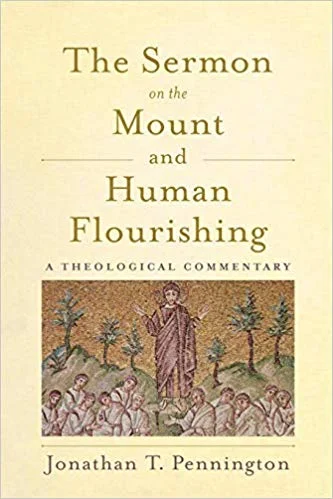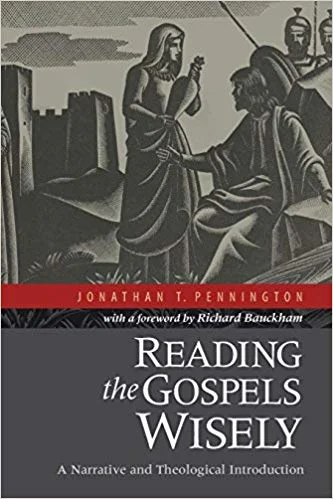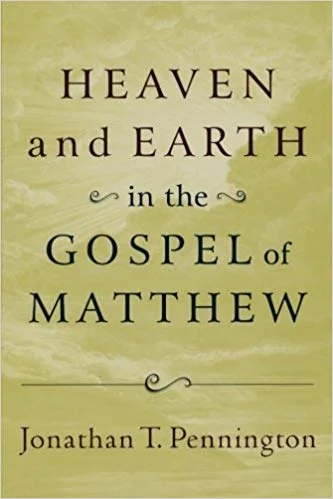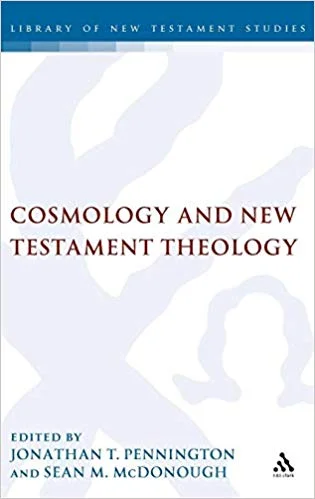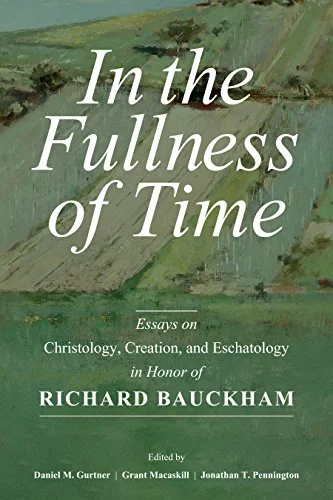BOOKS
Come and See
Overview
3 Effective Ways to Study Scripture for an Essential Understanding of Who God Is
The Bible invites us to know God and have eternal life. That makes reading, understanding, and applying Scripture the most important journey we will ever take, but it can be difficult without a guide to provide direction.
In Come and See, Jonathan Pennington helps readers understand what it means to know God from the Bible and details 3 effective approaches to interpreting Scripture. Using the engaging analogy of a road trip, he introduces 3 friends who each have distinct, clear ways of navigating the Bible: informational (understanding genres in Scripture and avoiding exegetical mistakes); theological (reading canonically, traditionally, and creedally); and transformational (focusing on the goal of reading Scripture, our posture as readers, and the role of the Holy Spirit). Pennington gives detailed advice for employing all 3 reading modes, equipping readers to gain wisdom and know God better.
Comprehensive: Explores 3 approaches to studying Scripture―informational, theological, and transformational―and includes exercises to practice each
Enhances Personal or Group Bible Study: Helps readers engage in deeper communion with God by purposefully journeying through his word
Ideal for Pastors, Seminary Students, and Laypeople: With an engaging, conversational style, Pennington teaches deep truths about knowing God and interpreting Scripture
Small preaching
Overview
Is bigger always better?
It's not often that we hear the virtues of the small. Our culture teaches that bigger is better--and that includes church ministry and preaching, too. But what if rather than swinging for the fences, preachers focused on improving their sermons through small habits, practices, and exercises? What if smaller is better?
In a world where "small" isn't always celebrated, Jonathan T. Pennington provides Small Preaching, a short book of simple tips that can have revolutionary effects over time. Pennington offers preachers 25 words of wisdom that will help shape their preaching for the better.
JESUS THE GREAT PHILOSOPHER
Overview
Many of us tend to live as though Jesus represents the "spiritual part" of our lives. We don't clearly see how he relates to the rest of our experiences, desires, and habits. How can Jesus, the Bible, and Christianity become more than a compartmentalized part of our lives?
Highly regarded New Testament scholar and popular teacher Jonathan Pennington argues that we need to recover the lost biblical image of Jesus as the one true philosopher who teaches us how to experience the fullness of our humanity in the kingdom of God. Jesus teaches us what is good, right, and beautiful and offers answers to life's big questions: what it means to be human, how to be happy, how to order our emotions, and how we should conduct our relationships.
This book brings Jesus and Christianity into dialogue with the ancient philosophers who asked the same big questions about finding meaningful happiness. It helps us rediscover biblical Christianity as a whole-life philosophy, one that addresses our greatest human questions and helps us live meaningful and flourishing lives.
Reading the New Testament as Christian Scripture: A Literary, Canonical, and Theological Survey
with Constantine R. Campbell
Overview
This survey textbook by two respected New Testament scholars is designed to meet the needs of contemporary evangelical undergraduates. The book effectively covers the New Testament books and major topics in the New Testament, assuming no prior academic study of the Bible. The authors pay attention to how the New Testament documents fit together as a canonical whole that supplements the Old Testament to make up the Christian Scriptures. They also show how the New Testament writings provide basic material for Christian doctrine, spirituality, and engagement with culture. Chapters can be assigned in any order, making this an ideal textbook for one-semester courses at evangelical schools.
This is the first volume in a new series of survey textbooks that will cover the Old and New Testaments. The book features full-color illustrations that hold interest and aid learning and offers a full array of pedagogical aids: photographs, sidebars, maps, time lines, charts, glossary, and discussion questions. Additional resources for instructors and students are available through Textbook eSources.
The sermon on the mount and human flourishing
Overview
The Sermon on the Mount, one of the most influential portions of the Bible, is the most studied and commented upon portion of the Christian Scriptures. Every Christian generation turns to it for insight and guidance.
In this volume, a recognized expert on the Gospels shows that the Sermon on the Mount offers a clear window into understanding God's work in Christ. Jonathan Pennington provides a historical, theological, and literary commentary on the Sermon and explains how this text offers insight into God's plan for human flourishing. As Pennington explores the literary dimensions and theological themes of this famous passage, he situates the Sermon in dialogue with the Jewish and Greek virtue traditions and the philosophical-theological question of human flourishing. He also relates the Sermon's theological themes to contemporary issues such as ethics, philosophy, and economics.
Reading the Gospels Wisely: A Narrative and Theological Introduction
Overview
This textbook on how to read the Gospels well can stand on its own as a guide to reading this New Testament genre as Scripture. It is also ideally suited to serve as a supplemental text to more conventional textbooks that discuss each Gospel systematically. Most textbooks tend to introduce students to historical-critical concerns but may be less adequate for showing how the Gospel narratives, read as Scripture within the canonical framework of the entire New Testament and the whole Bible, yield material for theological reflection and moral edification.
Pennington neither dismisses nor duplicates the results of current historical-critical work on the Gospels as historical sources. Rather, he offers critically aware and hermeneutically intelligent instruction in reading the Gospels in order to hear their witness to Christ in a way that supports Christian application and proclamation.
Heaven and earth in the gospel of matthew
Overview
The theme of heaven and earth is a much-overlooked aspect of the Gospel of Matthew. In this work, rising scholar Jonathan Pennington articulates a fresh perspective on this key interpretive issue, challenging both the scholarly and popular understandings of the meaning of Matthew's phrase, "kingdom of heaven."
Pennington argues that rather than being a reverent way of referring to God as is typically assumed, "heaven" in Matthew is part of a highly developed discourse of heaven and earth language. Matthew's way of using heaven language serves one overriding theological purpose: to highlight the tension that currently exists between heaven and earth or God and humanity, while looking forward to its eschatological resolution. This affordable North American paperback edition was previously published in hardcover by Brill.
Cosmology and New Testament Theology
edited with Sean McDonough
Overview
For first-century people, cosmology was a fundamental part of their worldview. Whether it was the philosopher contemplating the perfection of the heavenly orbits, the farmer searching the sky for signs of when to plant his crops, or the desert-dwelling sectarian looking for the end of the world, the cosmos held an endless fascination and occupied a prominent place in their understanding of life.
For most ancient peoples, cosmology and theology were inseparable. Thus, when the Jewish and Christian Scriptural traditions begin with the bold claim, "In the beginning God created the heavens and earth," these words make statements which are at once cosmogonic, cosmological, and theological.
Scholarship has begun only recently to investigate more fully the various cosmological and cosmogonic traditions that were current in the time of the Old and New Testaments. Much of this work, however, has focused on how OT conceptions of the world compared to other Ancient Near Eastern traditions. Much less has been done on the cosmological traditions which stand behind the views of the NT writers. Even fewer works have sought to connect cosmological views with NT theology. In light of the great importance that cosmology had in ancient peoples' worldviews and theological understanding, a thorough investigation of this neglected topic is in order.
Cosmology and New Testament Theology systematically examines the NT documents to show how cosmological language and concepts inform, interact with, and contribute to the specific theological emphases of the various NT books. In some NT books, the importance of cosmology can be easily discerned, while in others what is required is a new and close examination of key cosmological terms (e.g., heaven, earth, world, creation) with an eye to the themes and theology of the book.
In the Fullness of Time: Essays on Christology, Creation, and Eschatology in Honor of Richard Bauckham
edited with Daniel Gurtner and Grant Macaskill
Overview
Over the course of his distinguished career Richard Bauckham has made pioneering contributions to diverse areas of scholarship ranging from ethics and contemporary issues to hermeneutical problems and theology, often drawing together disciplines and fields of research all too commonly kept separate from one another.
In this volume some of the most eminent figures in modern biblical and theological scholarship present essays honoring Bauckham. Addressing a variety of subjects related to Christology, creation, and eschatology, the contributors develop elements of Bauckham's biblical and theological work further, present fresh research of their own to complement his work, and raise critical questions.
greek and hebrew TEXTBOOKS
The Elements of NT Greek Paperback and Audio CD Pack, with J. W. Wenham and N. H. Young (Cambridge University Press), 2001.
New Testament Greek Vocabulary (Zondervan), 2001
Old Testament Hebrew Vocabulary (Zondervan), 2003
Readings in the Greek New Testament (Zondervan), 2004
The Elements of New Testament Greek Listening Materials, with Jeremy Duff (Cambridge University Press), 2005





